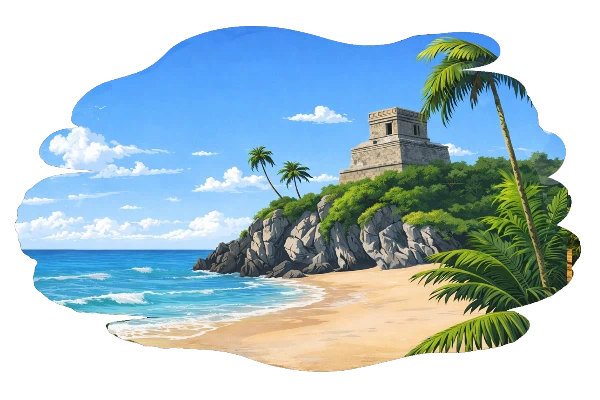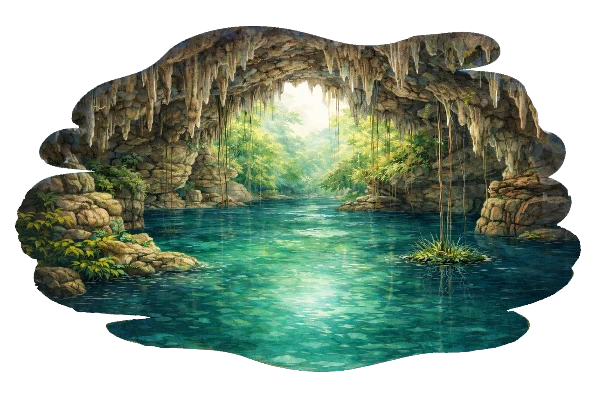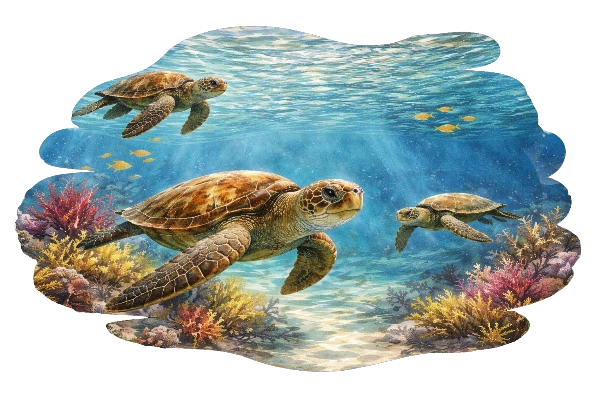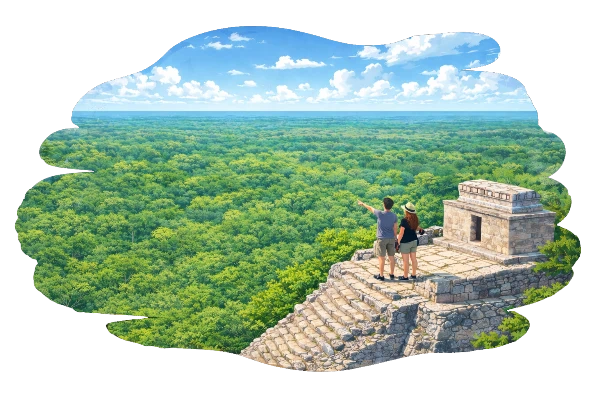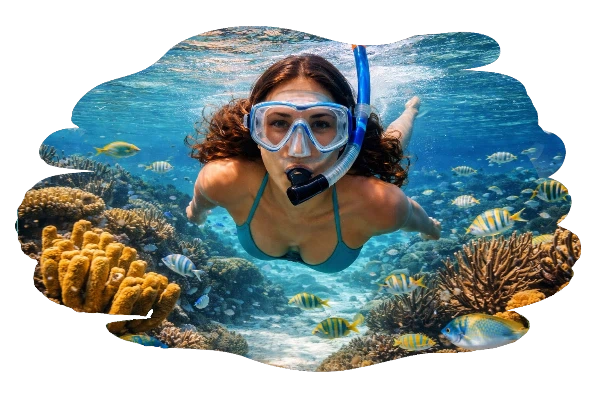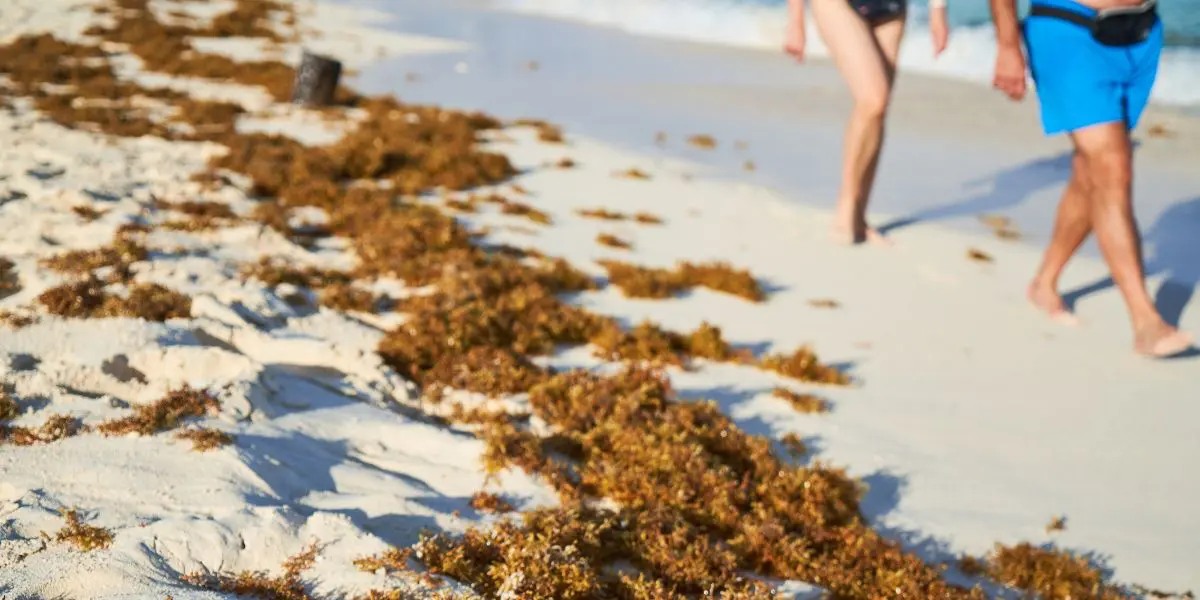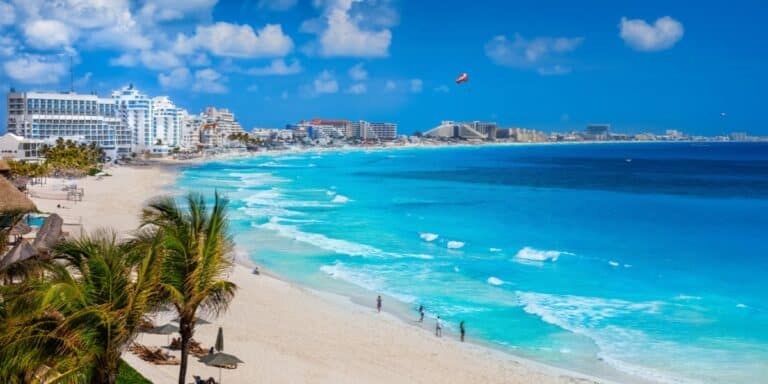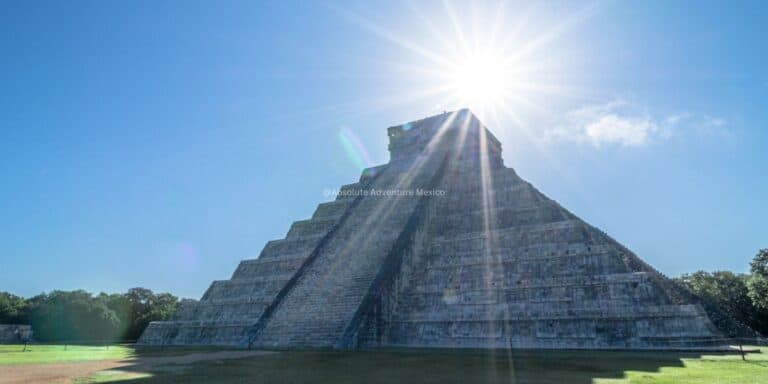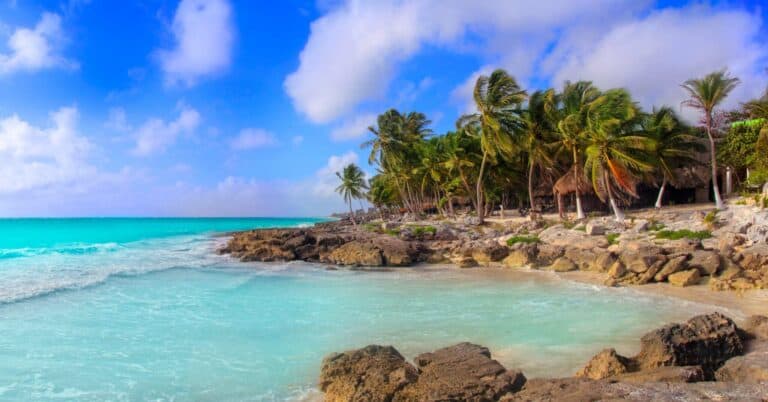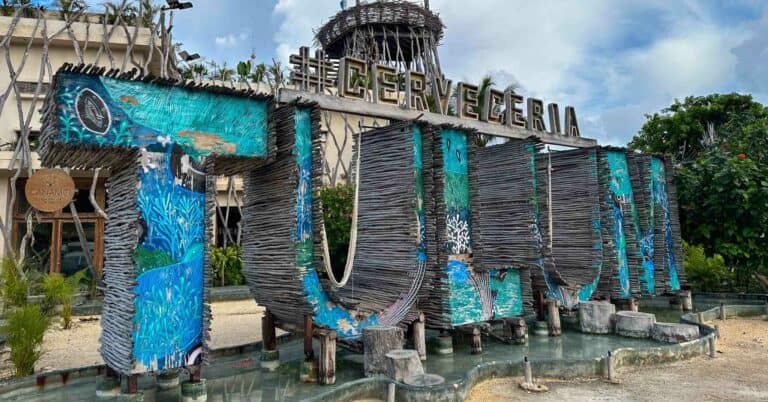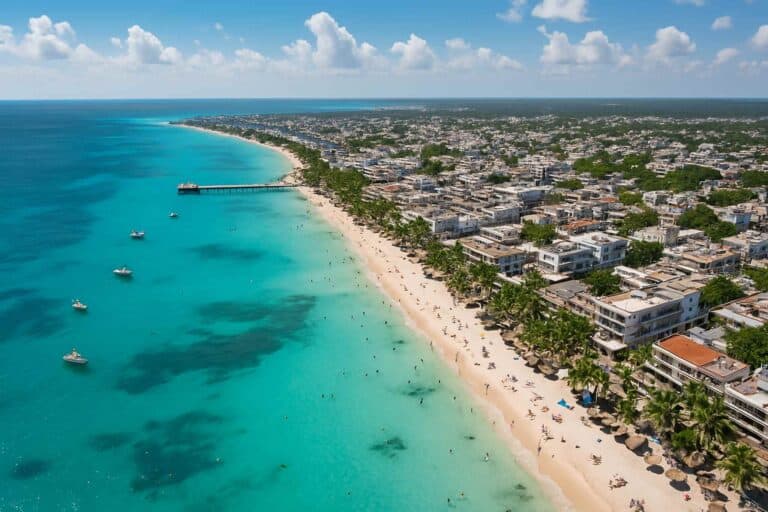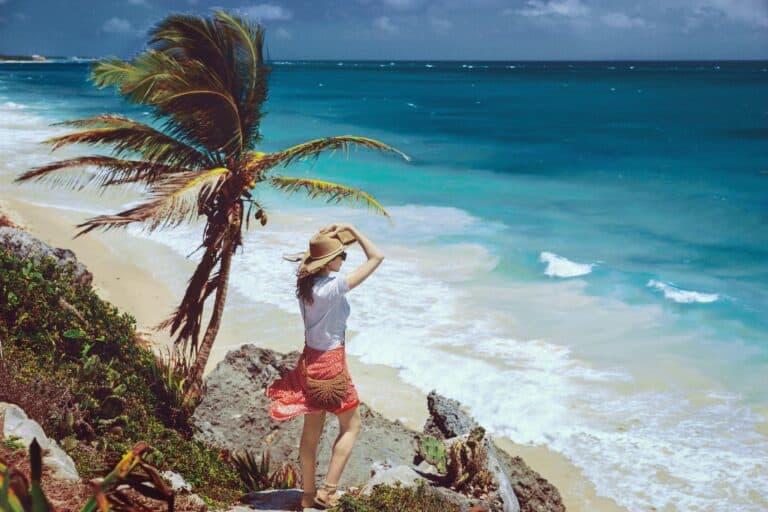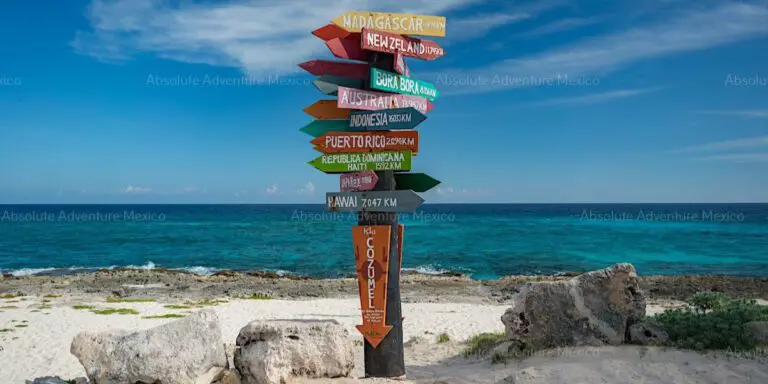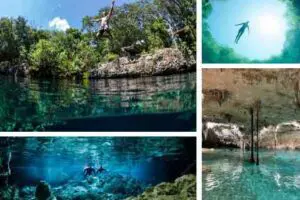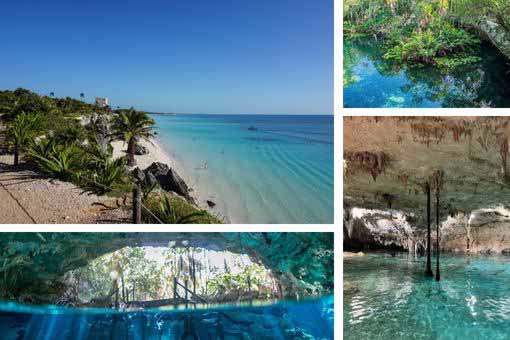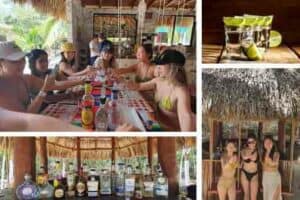Seaweed in Riviera Maya: 2025 Guide to Sargassum & Seaweed-Free Activities
Planning a trip to the Riviera Maya? While the region’s pristine beaches are a major draw, visitors may encounter sargassum seaweed during certain times of the year. This guide provides up-to-date information on seaweed conditions, the best times to visit, and alternative activities to ensure a memorable vacation.
What Causes the Sargassum Blooms?
The recent rise in sargassum along the coasts of the Riviera Maya isn’t random—it’s the result of a combination of environmental changes and human influences. Here’s a closer look at the primary factors behind this seasonal phenomenon:
1. Warmer Ocean Temperatures
As global temperatures rise, so do sea surface temperatures—especially in the tropical Atlantic and Caribbean regions. Sargassum thrives in warm water, which accelerates its growth and allows it to spread more rapidly. Warmer seas essentially act like a greenhouse for this floating algae.
2. Excess Nutrients in the Water
Runoff from agricultural areas in South America, especially along the Amazon River, is rich in nitrogen and phosphorus—key nutrients for algae growth. These nutrients flow into the ocean and act like fertilizer for sargassum, allowing it to bloom in massive quantities as it drifts northward.
3. Changing Ocean Currents and Wind Patterns
Shifts in ocean currents and trade winds—possibly influenced by climate change—are redirecting the path of floating sargassum. Instead of staying in the open Atlantic (particularly the Sargasso Sea, where it naturally occurs), large patches are now drifting toward the Caribbean, Gulf of Mexico, and the Yucatán Peninsula.
4. Deforestation and Erosion
Widespread deforestation in parts of Central and South America has led to increased soil erosion and sediment runoff into rivers and coastal waters. This runoff carries even more nutrients into the ocean, which adds to the nutrient-rich soup that fuels sargassum blooms.
Efforts to Manage Seaweed in Riviera Maya
To protect its beaches and maintain a pleasant experience for visitors, the Riviera Maya has implemented a variety of proactive strategies to tackle sargassum when it arrives:
Floating barriers are strategically placed offshore to intercept large patches of seaweed before they can drift onto the beaches. These booms help reduce the volume of sargassum that reaches the coastline.
Dedicated cleanup teams work daily to collect and remove seaweed that accumulates on the sand. These efforts, often supported by local municipalities and private businesses, help restore beach access quickly after heavy arrivals.
Monitoring tools, including aerial and satellite data, are used to track seaweed movements across the Caribbean. This forecasting helps beach communities and hotels prepare in advance and allocate resources effectively.
Thanks to these ongoing efforts, many beaches in the Riviera Maya remain accessible even during high sargassum periods. While conditions can vary, local teams are committed to minimizing the impact on travelers and the environment.
Best Time to Visit: Seaweed-Free Seasons
To minimize the likelihood of encountering sargassum, consider planning your trip during the dry season, from November to March. During these months, cooler ocean temperatures and favorable currents result in clearer, seaweed-free beaches.
Top Seaweed-Free Activities in the Riviera Maya
If you’re visiting during the sargassum season, don’t worry—the Riviera Maya is rich in experiences that go far beyond the beach. From freshwater cenotes to cultural tours, here are some of the best seaweed-free activities you can enjoy year-round:
Swim in Cenote
The Riviera Maya is home to hundreds of cenotes—natural sinkholes filled with crystal-clear freshwater. These underground pools offer a refreshing escape from the heat and are completely untouched by seaweed. Whether you want to swim, snorkel, or explore caverns with stalactites and stalagmites, visiting cenotes like Dos Ojos, Taak Bi Ha, or Pet Cemetery is a must-do experience.
Discover the Serenity of Laguna Kaan Luum
Tucked away just south of Tulum, Laguna Kaan Luum is a hidden gem perfect for a relaxing day away from the coastline. This striking lagoon features vibrant turquoise water surrounding a deep cenote at its center, ideal for swimming or simply soaking in the natural beauty. It’s a peaceful alternative to the beach, with no seaweed in sight.
Step Back in Time at Mayan Ruins
The majestic ruins of Chichén Itzá, Coba, and Tulum offer an unforgettable glimpse into the ancient Maya civilization. Explore towering pyramids, ball courts, and ceremonial sites surrounded by jungle or overlooking the Caribbean Sea. These archaeological sites are located inland or on raised cliffs, making them completely unaffected by sargassum conditions.
Enjoy a Tequila Tasting Tour
Discover the rich flavors and traditions behind Mexico’s most iconic spirit with a tequila or mezcal tasting experience. Learn how agave is harvested and distilled, and sample a variety of artisanal tequilas—some you won’t find in stores. It’s a fun and flavorful way to immerse yourself in Mexican culture, with no need to set foot on a beach.
Explore Local Towns and Artisan Markets
For a taste of local culture, take a stroll through vibrant towns like Tulum, Playa del Carmen, or Valladolid. You’ll find handcrafted souvenirs, colorful textiles, authentic street food, and a warm welcome from local vendors. It’s a fantastic way to support the local community while enjoying a sargassum-free experience.
Other seaweed-free activities include:
Floating River: Visit the Floating Canals at Sian Ka’an. From the boat trip, don a life vest and jump into the gently moving river. Float through the mangroves is an amazing way to experience the natural beauty in this UNESCO Biosphere
Bacalar: Swim and relax in the surreal Bacalar Lagoon with its 7 shades of blue and turquoise waters. Swimming, paddle boarding and kayaking can all be enjoyed in the stunningly beautiful lagoon
Shopping in Cancun, Playa del Carmen and Tulum town centers.
Although some beaches in the Riviera Maya may be impacted by sargassum, knowing when it’s most likely to appear and choosing alternative inland experiences can lead to an unforgettable trip. By planning your visit during low-seaweed seasons and focusing on off-beach adventures, you’ll still enjoy the very best of the region.


